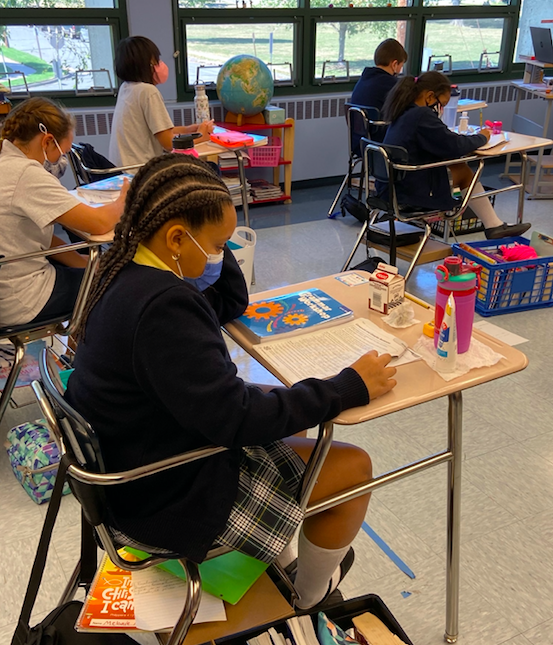Waterbury children will now have the opportunity to receive a partial scholarship to a private or parochial school of their parents’ choice, as the Children’s Educational Opportunity Foundation of Connecticut has expanded into the Waterbury area.
The CEO Foundation offers partial scholarships – up to $2,100 per year – for children to attend any accredited private or parochial school in the state, with the family paying the remainder of the tuition.
The foundation currently serves Bridgeport, New Haven, Hartford and East Hartford and relies on private donations to fund the scholarships.
With their expansion into Waterbury, CEO Foundation Executive Director Carolanne Marquis hopes to gain more donors and help more students attend the school of their choice.
“By adding Waterbury, and continuing to explore opportunities to broaden eligibility for scholarships, CEO is working on all fronts to become a part of the fabric of education in Connecticut, bridge the growing education gap, and better the future of children in the State,” Marquis said.
“We are absolutely ecstatic to be able to extend scholarship opportunities to the families of Waterbury during these difficult times,” said Lew Andrews, founder and president of CEO. “Our board of directors and passionate donors stepped up to make it happen for the 2021-22 school year.”
The foundation, which is now 25 years old and counts former Sen. Joe Lieberman as an honorary board member, has awarded over 10,000 scholarships to low income families in urban areas, contributing over $21 million toward their education. The Foundation boasts a 90 percent retention rate and there remains a rather lengthy waiting list.
The scholarships are for kindergarten through 8th grade, as the cost for private high schools generally becomes too high for the scholarships to be effective. Nevertheless, Marquis says giving children a solid start helps ensure better academic performance when they reach higher learning levels.
But, like many things in Connecticut, there is more need and applications than CEO’s funding can handle.
The CEO Foundation awarded 364 scholarships for the 2020-2021 school year, expending $799,800 in scholarship funds.
Marquis said this year 221 additional families qualified for the scholarship, but the foundation didn’t have the funds to support them. “We exhausted our funds,” Marquis said.
During the pandemic, the CEO Foundation closed its office in Bridgeport and Marquis began working out of her home, but the change allowed the foundation to cover 12 more scholarships.
While children accepted for scholarships may attend the private school of their parents’ choice, it does come with a price tag. CEO scholarships pay half of the tuition up to $2,100 but parents have to cover the rest.
Marquis says this means families have some “skin in the game” as well.
According to CEO Foundation’s annual report, the average family income of CEO scholars was $29,021.94 and the average family contribution toward the school cost was $3,874.19 per year. Marquis says that there are often other scholarships opportunities that can further offset the costs.
Connecticut has one of the highest learning achievement gaps between minority students largely in urban areas and students in surrounding, mostly-white suburbs, and that gap has remained stubbornly persistent over the years.
Lawmakers and municipalities clamor over education cost sharing funds from the state for distressed and financially strapped cities, while parents in those cities often clamor to get their children admitted to magnet and charter schools through lottery systems.
The pandemic, which closed schools down for several months and forced children onto distance learning platforms, has threatened to widen that gap as thousands of children didn’t sign in for online classes, leading to concerns that Connecticut’s achievement gap will grow more pronounced.
Waterbury public schools returned to a hybrid learning model in February of 2021, with students attending school during the morning and then continuing with remote learning in the afternoon. New Haven Public Schools also have hybrid learning with children attending in-person between two and four days per week.
Meanwhile, the Catholic Academy of Waterbury fully reopened in September, although parents had the option to have their children engage in distance learning.
Marquis said the COVID shut down was “difficult” but that her scholars are back in school. “They’ve pretty much been in school the whole year,” Marquis said. “The classes are taking place in school every day.”
CEO will open to applications for the 2021-2022 school year on March 1, 2021

